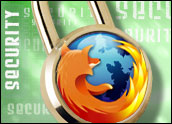
After an unprecedented development process that brought four drafts in eighteen months, the Free Software Foundation (FSF) has released the third version of the GNU General Public License (GNU GPL), the world’s most popular free software license.
“Since we founded the free software movement over 23 years ago, the free software community has developed thousands of useful programs that respect the user’s freedom,” explained Richard Stallman, founder and president of the FSF. “The programs are in the GNU/Linux operating system, as well as personal computers, telephones, Internet servers and more. Most of these programs use the GNU GPL to guarantee every user the freedom to run, study, adapt, improve and redistribute the program.”
Tweak as You Please
Version 3 of the GNU GPL strengthens this guarantee, the FSF says, by ensuring that users can modify the free software on their personal and household devices, and by granting patent licenses to every user. It also extends compatibility with other free software licenses and increases international uniformity.
Because the GPL license is used by so many open source projects — about 75 percent — it’s also the most influential.
“By hearing from so many different groups in a public drafting process, we have been able to write a license that successfully addresses a broad spectrum of concerns. But even more importantly, these different groups have had an opportunity to find common ground on important issues facing the free software community today, such as patents, ‘Tivoization,’ and treacherous computing,” said Peter Broan, the FSF executive director.
Protecting Everyone
Because some commercial device manufacturers and application providers have used free open source code and have then modified it to block changes to it, they have aroused the ire of end users and developers who believe the code should remain free. Tivoization and so-called Trusted Computing schemes come about when a company prevents a device or application with modified code from running or talking to a Web site.
In terms of the TiVo case, a developer could modify that code, but the TiVo box would prevent that new code from running, Michael Cot, a RedMonk analyst, told LinuxInsider.
“It kept a checksum — or some other fingerprint of the code — that it’d check before executing the code. So, if you executed the code modifed, TiVo would say, ‘uh-uh!’ and stop executing,” Cot explained. “Thus, it prevented one of the major desires the GPL is supposed to protect: the ability to modify code and run it.”
Of course, GPL v3 does not prohibit digital rights management (DRM) schemes, but it has the side effect of ensuring that users can remove features they don’t like. Applicable laws and agreements with manufacturers for the use of devices or services will likely still apply. So, just because a user might be able to remove a DRM scheme by modifying a device or application, the actions would become illegal if — and only if — it broke an existing law.
“The GPL isn’t licensing magic that makes illegal things legal,” Cot noted.
Patent Protection
GPL v3 is also aimed at dealing with the world of software patents. It transfers relevant patent protections from organizations that contribute to open source to those who use the open source solutions. In addition, it blocks future deals that provide patent relief to some users but not to all users. The new GPL v3 ensures that deals like those between Novell and Microsoft result in protection against possible patent infringement to everyone who uses the GPL v3 licensed code, regardless of their method of obtaining it.
“The GPL is the fundamental license that ties the free software community together,” said Karl Berry, a longtime GNU developer and Texinfo maintainer. “Version 3 does an excellent job of updating the license to the present-day computing reality.”
The FSF says that more than 15 GNU programs will be released under the new license today, with the entire GNU Project to follow suit in the coming months. Plus, the FSF will also encourage adoption of the license through education and outreach programs.
“A lot of time and effort went into this license. Now free programs must adopt it so as to offer their users its stronger protection for their freedom,” Stallman said.



















































